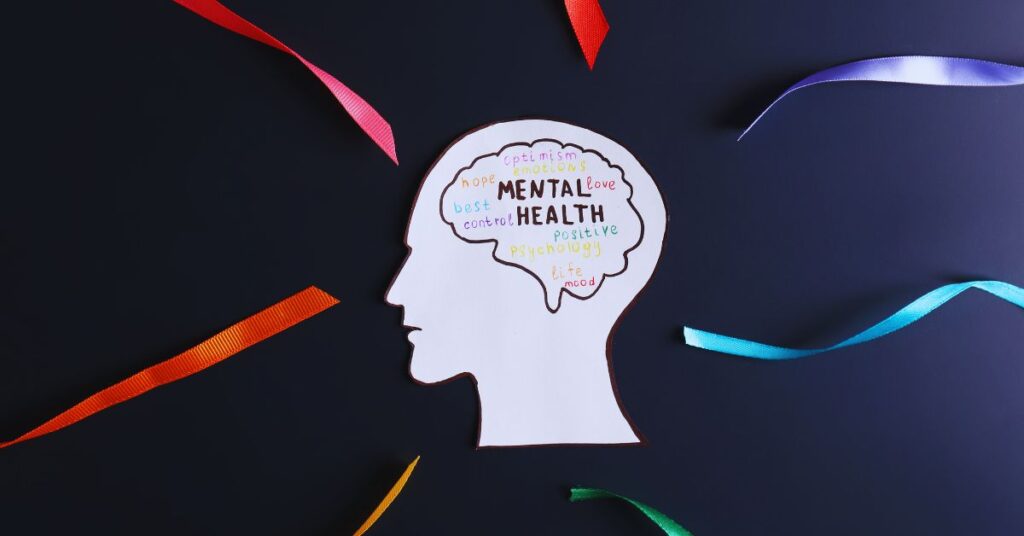Talking to your doctor about depression can feel daunting. It’s important to start this conversation.
Depression affects many people, and discussing it with a doctor is a crucial step. Your doctor can provide support, advice, and treatment options. Being open about your feelings is essential. It helps in getting the right care. This blog will guide you on how to approach this sensitive topic.
We’ll cover how to prepare for the visit, what to say, and how to follow up. Understanding these steps can ease your anxiety and ensure you get the help you need. Let’s dive into the best ways to talk to your doctor about depression.
Topic of Contents
TogglePreparing For The Appointment
Preparing for the appointment with your doctor is crucial. It helps you have a productive discussion about your depression. Being prepared ensures you can clearly express your concerns and needs.
Gather Information
First, gather all the information you can about your symptoms. Research depression to understand it better. Know the common signs and treatments. This knowledge will help you ask informed questions. Write down any questions you have about depression. Note any personal concerns or fears. Bring this list to your appointment. This way, you won’t forget to ask anything important.
List Symptoms
Next, list all your symptoms. Be honest and thorough. Include emotional and physical symptoms. Note how often they occur and their severity. Describe changes in your mood, energy, and sleep patterns. Mention any changes in appetite or weight. Document any thoughts of self-harm or hopelessness. Listing symptoms helps your doctor understand your situation. It provides a clear picture of your mental health. This allows for a more accurate diagnosis and effective treatment plan.
Choosing The Right Doctor
Talking to your doctor about depression can feel overwhelming. Choosing the right doctor is a crucial step in your journey to better mental health. The right doctor can provide the support and treatment you need. Let’s explore how to find the right one for you.
Primary Care Vs. Specialist
Your primary care doctor is usually your first point of contact. They can offer initial support and refer you to a specialist if needed. Primary care doctors can help with basic mental health issues. They can prescribe medication and provide general advice. For more serious or complex cases, a specialist may be needed. A psychiatrist is a medical doctor who specializes in mental health. They can diagnose and treat various mental health conditions. Psychologists can provide therapy and counseling but cannot prescribe medication. Choosing between these professionals depends on your needs.
Finding A Mental Health Professional
To find a mental health professional, start by asking for recommendations. Your primary care doctor can refer you to a specialist. Friends and family members may also have suggestions. Check online directories and reviews to find local mental health professionals. Websites like Healthgrades and Psychology Today can provide valuable information. Look for professionals with positive reviews and relevant experience. When you find potential doctors, verify their credentials. Ensure they are licensed and have the necessary qualifications. It’s important to feel comfortable with your doctor. Schedule a consultation to see if they are a good fit for you. Here’s a quick comparison of primary care doctors and specialists:
| Primary Care Doctor | Specialist (Psychiatrist/Psychologist) |
|---|---|
| First point of contact | Expert in mental health |
| Can prescribe medication | Can diagnose and treat mental health conditions |
| General advice and support | Provides specialized care and therapy |
Choosing the right doctor is essential for effective treatment. Take your time to find the best fit for your needs.
Starting The Conversation
Talking to your doctor about depression can feel daunting. Share your feelings openly to receive the best support. Seek guidance and be honest about your symptoms.
Talking to your doctor about depression can feel overwhelming. You might not know where to start. But discussing your feelings is an important step. It helps in getting the right treatment.
Expressing Your Concerns
Begin by sharing your symptoms. Mention how often you feel sad or hopeless. Talk about changes in your sleep or appetite. Explain any loss of interest in activities you once enjoyed. Be honest about your daily struggles. Your doctor needs all details to help you better.
Overcoming Fear And Stigma
Many people fear talking about mental health. They worry about being judged. Remember, your doctor is there to help, not judge. Mental health is as important as physical health. Think of it like any other medical issue. Everyone needs support sometimes. Speaking up is a brave step. It shows you care about your well-being. “`
Describing Your Symptoms
When talking to your doctor about depression, describing your symptoms clearly is crucial. This helps your doctor understand your situation better. It also aids in diagnosing and treating your condition effectively.
Mood And Emotional Changes
Start by talking about your mood. Mention if you feel sad, empty, or hopeless. Note if you experience irritability or frustration. Tell your doctor if you feel anxious or restless. Share if you have lost interest in activities you once enjoyed. These emotional changes are important symptoms of depression.
Physical Symptoms
Depression can also cause physical symptoms. Tell your doctor if you have trouble sleeping or sleep too much. Mention any changes in your appetite or weight. Describe if you feel fatigued or lack energy. Discuss any aches or pains that have no clear cause. Physical symptoms can often accompany mood changes in depression.
Discussing Treatment Options
Talking to your doctor about depression treatment options is crucial. Your doctor can help you understand the best ways to manage your symptoms. This discussion is an opportunity to learn about different methods that may work for you. Let’s explore two main treatment options: medication and therapy.
Medication
Medication can be a vital part of treating depression. Your doctor may suggest antidepressants to help balance chemicals in your brain. It’s important to discuss:
- Possible side effects
- How long it takes to work
- Dosage and frequency
Ask questions about each medication. Understand what you are taking and why. Keep track of how you feel. Share any changes with your doctor. This helps find the right medication for you.
Therapy
Therapy is another key treatment for depression. Different types of therapy can help. Some common types are:
| Type of Therapy | Focus |
|---|---|
| Cognitive Behavioral Therapy (CBT) | Changing negative thought patterns |
| Interpersonal Therapy (IPT) | Improving relationships |
| Psychodynamic Therapy | Exploring past experiences |
Discuss with your doctor which type of therapy suits you best. Consider:
- Your personal comfort level
- Availability of therapists
- Cost and insurance coverage
Combining medication and therapy often works well. Be open with your doctor. Share your thoughts and concerns. This helps create a treatment plan tailored to you.
Setting Realistic Goals
Talking to your doctor about depression can feel overwhelming. Setting realistic goals can help. Goals give you a clear path and make the journey manageable. Break down your goals into short-term and long-term plans. This will help you stay focused and motivated.
Short-term Goals
Start with short-term goals. These are small steps you can take daily or weekly. Begin by scheduling a doctor’s appointment. Write down your symptoms and how you feel. This will help your doctor understand your situation better. Consider keeping a journal. Write about your mood, sleep patterns, and any changes you notice. This can provide valuable information to your doctor. Another short-term goal could be establishing a routine. Try to wake up and go to bed at the same time every day. This helps regulate your body’s clock.
| Short-Term Goal | Action |
|---|---|
| Schedule Doctor’s Appointment | Call the clinic and book a time |
| Write Down Symptoms | Note down feelings and behaviors |
| Keep a Journal | Record mood and sleep patterns |
| Establish Routine | Set consistent sleep and wake times |
Long-term Plans
Next, focus on long-term plans. These goals may take months or even years to achieve. Discuss a treatment plan with your doctor. This could include therapy, medication, or lifestyle changes. Be open to trying different treatments to find what works best for you. Set goals for personal growth. This could be building stronger relationships or pursuing hobbies. Aim to improve your physical health too. Regular exercise and a balanced diet can boost your mood. Make a plan to check in with your doctor regularly. This ensures you stay on track and adjust your plan as needed.
- Discuss Treatment Plan: Therapy, medication, lifestyle changes
- Personal Growth: Strengthen relationships, pursue hobbies
- Physical Health: Regular exercise, balanced diet
- Regular Check-ins: Keep track of progress with your doctor
Remember, setting realistic goals can make managing depression easier. Start with small steps and work towards bigger plans. Your doctor can help guide you through this process.
Managing Follow-up Appointments
Managing follow-up appointments is crucial for effective depression treatment. Regular visits help monitor progress and make necessary adjustments. This ensures the treatment remains effective and appropriate.
Tracking Progress
Tracking progress between appointments is essential. Keep a journal of your mood, energy levels, and daily activities. Note any changes, no matter how small. Bring this journal to your appointments. Use a simple table to track your mood:
| Date | Mood Rating (1-10) | Notes |
|---|---|---|
| October 1 | 5 | Felt tired, but managed to work. |
| October 2 | 4 | Struggled to get out of bed. |
| October 3 | 6 | Went for a walk, felt better. |
This helps your doctor see patterns and make informed decisions.
Adjusting Treatment Plans
Adjusting treatment plans is sometimes necessary. Your doctor may suggest changes based on your progress. This could include adjusting medication, therapy sessions, or lifestyle changes. Here are some common adjustments:
- Medication changes: Dose adjustments or trying a different medication.
- Therapy sessions: Increasing frequency or trying a new type of therapy.
- Lifestyle changes: Adding exercise, improving sleep, or changing diet.
Always communicate openly with your doctor. Discuss any side effects or concerns. This helps tailor the treatment to your needs.
Utilizing Additional Resources
Talking to your doctor about depression is a crucial step. But utilizing additional resources can provide extra support. These resources include support groups and educational materials. They can help you understand and manage your depression better.
Support Groups
Support groups bring people with similar experiences together. They offer a safe space to share feelings and thoughts. Joining a support group can help you feel less alone. You can find support groups in many places:
- Local community centers
- Hospitals
- Online platforms
Many organizations offer online support groups. They are convenient if you prefer to stay at home. Participating in these groups can provide new perspectives and coping strategies.
Educational Materials
Educational materials can deepen your understanding of depression. They provide information on symptoms, treatments, and coping mechanisms. These materials include:
- Brochures and pamphlets
- Books
- Websites
Reliable websites and online resources can be very helpful. Look for information from trusted sources like:
- Mental health organizations
- Government health agencies
- University research centers
Educational materials can empower you with knowledge. This can make your conversations with your doctor more productive. Knowing more about your condition can reduce anxiety and improve your confidence.
Frequently Asked Questions
How Do I Start A Conversation About Depression With My Doctor?
Start by being honest about your feelings. Mention specific symptoms and how long you’ve experienced them.
What Should I Tell My Doctor About My Depression?
Discuss your symptoms, their duration, and how they affect your daily life. Be open and honest.
Can I Ask My Doctor For Depression Medication?
Yes, you can ask about medications. Your doctor will evaluate your symptoms and suggest appropriate treatment options.
How Can I Prepare For A Depression Talk With My Doctor?
Write down your symptoms, questions, and concerns. This helps ensure you don’t forget anything important.
Conclusion
Talking to your doctor about depression is crucial. It helps you get support. Be honest about your feelings. Share your symptoms openly. Don’t hold back any details. Your doctor can provide the right help. Remember, you are not alone. Many people face depression.
Seeking help is a sign of strength. It leads to better mental health. Take that first step today. Your well-being matters.







